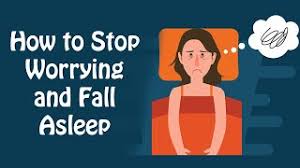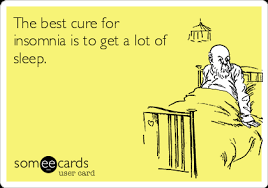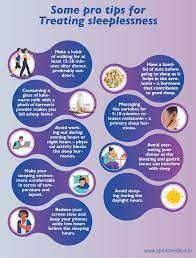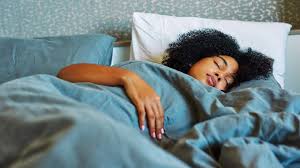The Link Between Anxiety and Insomnia: Effective Treatment Strategies
Anxiety and insomnia are often closely intertwined, with one frequently exacerbating the other. Individuals experiencing anxiety may find it difficult to fall asleep or stay asleep, leading to chronic insomnia. On the other hand, lack of quality sleep can increase feelings of anxiety and stress, creating a cycle that can be challenging to break.
Understanding the Connection
Anxiety can manifest in various forms, such as generalized anxiety disorder, panic disorder, or social anxiety. When left unmanaged, anxiety can significantly impact sleep patterns and quality, resulting in insomnia. Common symptoms of anxiety-related insomnia include difficulty falling asleep, waking up frequently during the night, or waking up too early and being unable to go back to sleep.
Treatment Approaches
Effective treatment for anxiety-related insomnia often involves a combination of therapeutic approaches tailored to address both the underlying anxiety and sleep disturbances. Some common strategies include:
- Cognitive Behavioral Therapy (CBT): CBT is a proven therapeutic approach that helps individuals identify and change negative thought patterns and behaviors contributing to both anxiety and insomnia.
- Relaxation Techniques: Practices such as deep breathing exercises, progressive muscle relaxation, mindfulness meditation, or yoga can help reduce overall anxiety levels and promote better sleep.
- Sleep Hygiene: Establishing a consistent bedtime routine, creating a comfortable sleep environment, limiting caffeine and screen time before bed, and maintaining regular sleep-wake schedules can improve sleep quality.
- Medication: In some cases, healthcare providers may prescribe medications to manage symptoms of anxiety or insomnia. It’s essential to consult with a healthcare professional before starting any medication regimen.
- Therapy: Individual therapy or counseling sessions can provide valuable support in addressing underlying causes of anxiety and developing coping mechanisms for better stress management.
Seeking Professional Help
If you are struggling with anxiety-related insomnia, it’s crucial to seek support from qualified healthcare professionals who can offer personalized treatment options based on your specific needs. Remember that effective treatment may involve a combination of therapeutic modalities tailored to address both your anxiety symptoms and sleep disturbances.
By addressing both your anxiety and insomnia concurrently through targeted interventions and lifestyle modifications, you can break the cycle of chronic sleeplessness and improve your overall well-being.
6 Effective Tips to Combat Anxiety-Induced Insomnia
- Establish a relaxing bedtime routine to signal your body that it’s time to wind down.
- Limit screen time before bed as the blue light can interfere with your sleep cycle.
- Practice deep breathing or meditation techniques to calm your mind and body.
- Engage in regular exercise during the day to promote better sleep at night.
- Avoid caffeine and heavy meals close to bedtime as they can disrupt your sleep.
- Consider talking to a therapist or healthcare provider for professional guidance and support.
Establish a relaxing bedtime routine to signal your body that it’s time to wind down.
Establishing a relaxing bedtime routine is a valuable tip for addressing anxiety-related insomnia. By creating a consistent routine that includes calming activities such as reading a book, taking a warm bath, or practicing relaxation techniques, you signal to your body that it’s time to wind down and prepare for sleep. This routine helps reduce anxiety levels, promotes relaxation, and conditions your mind and body to transition smoothly into restful sleep. Consistency in your bedtime routine can be instrumental in improving sleep quality and breaking the cycle of insomnia caused by anxiety.
Limit screen time before bed as the blue light can interfere with your sleep cycle.
Limiting screen time before bed is a crucial tip for managing anxiety-related insomnia. The blue light emitted by electronic devices can disrupt the production of melatonin, a hormone that regulates our sleep-wake cycle. By reducing exposure to screens before bedtime, you can help signal to your body that it’s time to wind down and prepare for restful sleep. This simple adjustment can have a significant impact on improving your sleep quality and overall well-being.
Practice deep breathing or meditation techniques to calm your mind and body.
Practicing deep breathing or meditation techniques can be a powerful tool in managing anxiety-related insomnia. By incorporating these calming practices into your daily routine, you can help quiet your mind, reduce stress levels, and promote relaxation in both your body and mind. Deep breathing exercises and meditation techniques are known to activate the body’s relaxation response, which can counteract the effects of anxiety and facilitate better sleep. Consistent practice of these techniques can not only improve your ability to fall asleep but also enhance the overall quality of your rest, leading to a more rejuvenated and refreshed state upon waking.
Engage in regular exercise during the day to promote better sleep at night.
Engaging in regular exercise during the day can be a beneficial strategy in the treatment of anxiety-related insomnia. Physical activity not only helps to reduce feelings of anxiety and stress but also promotes better sleep at night. Exercise can contribute to the regulation of sleep patterns, improve overall sleep quality, and enhance relaxation. By incorporating regular exercise into your daily routine, you can create a positive impact on both your mental well-being and your ability to achieve restful and rejuvenating sleep at night.
Avoid caffeine and heavy meals close to bedtime as they can disrupt your sleep.
Avoiding caffeine and heavy meals close to bedtime is a crucial tip in the treatment of anxiety-related insomnia. Caffeine is a stimulant that can interfere with your ability to fall asleep and stay asleep, exacerbating feelings of anxiety and restlessness. Heavy meals, especially those high in fats or spices, can lead to indigestion and discomfort, making it difficult to relax and drift off to sleep. By steering clear of caffeine and heavy meals before bedtime, you can create a conducive environment for restful sleep and help manage both your anxiety levels and sleep disturbances effectively.
Consider talking to a therapist or healthcare provider for professional guidance and support.
For individuals seeking relief from anxiety-related insomnia, it is highly beneficial to consider reaching out to a therapist or healthcare provider for professional guidance and support. These professionals can offer tailored treatment plans, including therapy sessions, medication management, and personalized strategies to address both the underlying anxiety and sleep disturbances. By consulting with a trained professional, individuals can receive expert advice and tools to effectively manage their symptoms and work towards achieving better sleep quality and overall well-being.




